The power of self-discovery: how Vania King replaced fear with passion
By Matt Fitzgerald Apr 09, 2020ATP cancels China swing, including Shanghai Masters, and adds six 250 events to 2022 calendar
By TENNIS.com Jul 21, 2022Pandemic surge hits Australian Open: Bernard Tomic's COVID-19 prediction comes true, spectators capped at 50 percent
By Kamakshi Tandon Jan 13, 2022Novak Djokovic has been exempted—but his stance hasn’t been vindicated
By Steve Tignor Jan 04, 2022Rafael Nadal back on track for Australian Open following COVID-19 case
By Kamakshi Tandon Dec 30, 2021Aussie Open field starts to experience effects of pandemic surge, vaccination issues
By Kamakshi Tandon Dec 21, 2021"It will happen this year": Stefanos Tsitsipas planning to get COVID-19 vaccine
By Kamakshi Tandon Sep 21, 2021Going to the US Open? Proof of vaccination status now required after change in COVID-19 policies
By TENNIS.com Aug 27, 2021A vaccinated Sofia Kenin to miss 2021 US Open due to positive COVID-19 test
By Matt Fitzgerald Aug 26, 2021The Rally: if you wanna play a major, you must play by the local rules
Jan 18, 2021The power of self-discovery: how Vania King replaced fear with passion
Through the ups and downs of her complex relationship with the sport, the American "now can really appreciate what tennis has done for me, and how it impacted me as a person, good and bad.”
Published Apr 09, 2020
Advertising
It’s an early afternoon in Long Beach, Calif. The sun glistens at full capacity on this Friday in late February, though luminosity raises another level when Vania King approaches with a warm smile and embrace.
Set to put pen to paper on her tennis career in the coming weeks, at Indian Wells, Miami and Charleston, endless possibilities for what lies next await King. Meeting at a charming café, where fresh-baked pastries and a plethora of caffeine combinations bring the petite place to life, we sit down at a table parked alongside Broadway, a popular hub for this diverse community east of the city center.
Sipping an iced lavender latte, King is back in a familiar setting, finishing up an extended visit. Her parents, Karen and David, are long-time residents in what the American describes as “her area.” She reminisces about biking to the beach and explains today’s choice for coffee is a newer spot, yet has grown into one of her beloved sanctuaries. There’s a sense of calmness and composure with the 31-year-old as she opens up, having reacquainted with her neighborhood and her identity. It’s taken considerable time, but King has located her good place after coming to terms with a tumultuous left ankle injury that peaked three years earlier and never allowed the two-time Grand Slam doubles champion to regain her former mobility.
“There are three things that have motivated me to play: Improvement, playing at the top level and the competition. They all go together,” King says to tennis.com. “It took me a while to realize I’ve plateaued in my improvement because of my ankle. Therefore, I don’t feel like I can play at the level I want to, and the last thing that holds me is the competition. It’s overshadowed by the fact I’m not happy on the court.”
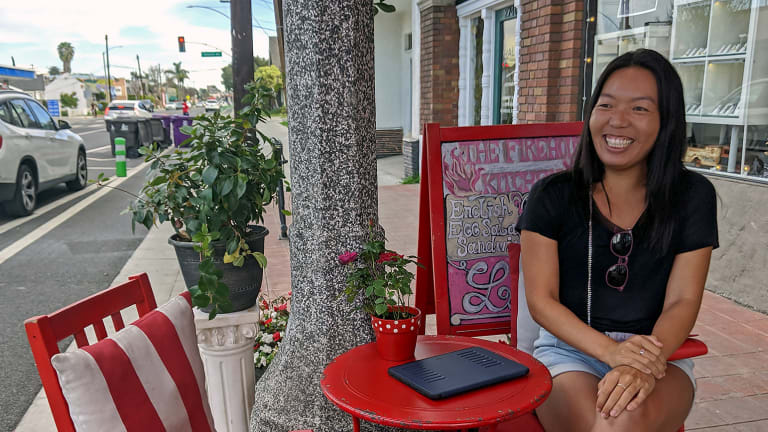
The power of self-discovery: how Vania King replaced fear with passion
Advertising
Tennis Channel
Diving into a heavenly slice of carrot cake for two, it soon becomes apparent perspective is the fundamental thread of our conversation about careers, challenges and connections.
Born to Taiwanese immigrants, King is the youngest of four first-generation Americans. Her parents epitomize moving to the U.S. to pursue, and later achieve, a better life. The couple purchased a failing fish and chips restaurant in Santa Monica and turned it around within a year. Every day, the two demonstrated hard work, commitment and honor—values that resonated with their offspring. But for the family patriarch, fried food fundamentals were not his endgame to a better tomorrow. Sport was the long-term play to guarantee a prosperous future—one the once disadvantaged boy had long decided on well before becoming a parent—and he relocated the family to Long Beach to increase prospects for their son Phillip, and later Vania.
Lacking a tennis background, King’s father was resourceful in exploiting the breadth of knowledge Southern California had to offer. Making smart investments in his children’s technical development, David King, who instructed his daughter from day one, observed as Vania worked with the likes of distinguished coaches Robert Landsdorp, Eliot Teltscher, Robert Van't Hof, Brian Teacher, Phil Dent and Ray Ruffels. David, driven by his impoverished upbringing, wanted nothing more than for his kids to succeed. He employed the only tactic he knew, fear, as a motivator to win, and punishment as a price for defeat.
Like a General commanding authority over a solider, the dynamic worked, but not for long once the sheltered King experienced life on tour. The oppressive approach eventually had its unintended consequences, some more extensive than others. At 17, King finally told her father she would quit if their player-coach relationship continued.
“He wanted us to be successful and he would do whatever he felt it took, regardless of how we felt. That’s the biggest problem with it,” says King.
He backed off, though still maintained considerable influence. King was enrolled to enter Stanford, a fresh opportunity she craved, but her parents convinced her to turn professional instead. Working with Ruffels, King’s all-court fundamentals were sharpened by the Australian, an area of development that paid early dividends when King won a WTA title in Bangkok and climbed to No. 50 by the end of 2006. The on-court success was a brief ray of sun however, as its gloss was soon overpowered by a storm of emotions.
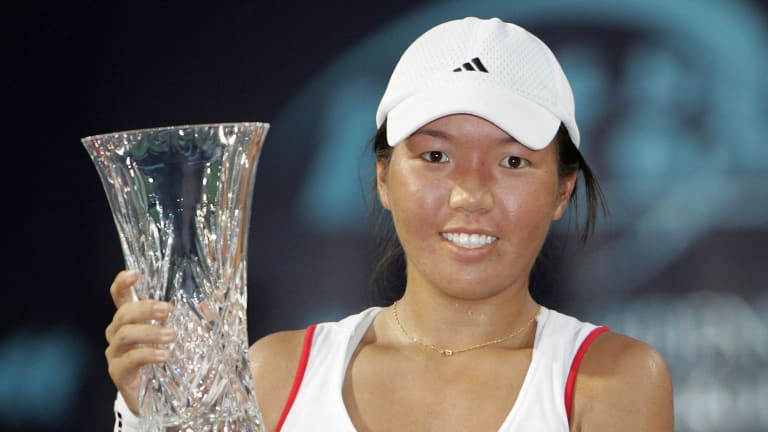
The power of self-discovery: how Vania King replaced fear with passion
© AFP via Getty Images
Advertising
Getty Images
Over the next year and a half, confusion and trepidation consumed King’s head. She watched from afar as friends soaked up the college experience. Inherently sensitive, the teenager felt overwhelmed by big stages and public scrutiny, struggling to sustain grit and passion without that unremitting fear she boldly removed from her life. It took a modern-day conversation for the runaway train King had boarded to terminate.
Using Facebook Messenger, King reached out to coach Tarik Benhabiles. When King was 14, she took lessons with the former No. 22, who left a strong impression on the perceptive introvert. Benhabiles went on to guide a blossoming Andy Roddick, before opening an academy in Boca Raton, Fla. King inquired about coming down to work with the Algerian-born Frenchman in the off-season, but her funds had nearly been drained and she had zero ties to South Florida at the time. Her decision to reconnect with Benhabiles turned out to be life-altering, professionally and personally.
“I was lost and alone. After contacting him, I had to ask questions like, ‘Where am I going to stay? How much do I pay you?’ This is the first time I really had a strong interaction with Tarik,” recalls King. “He said ‘don’t worry about it. We’ll figure it out when you get here.’ That really meant a lot. I stayed at his house with a couple other academy students. If I couldn’t afford it, he would lower his rates. He also knew with me, whenever I did well, I would pay him as much as I could. That’s a very unusual relationship in tennis. He’s such a dear friend to me.”
The mentality Benhabiles imparted in King, and his students, was simple: focus on putting in the right work first, and the results will eventually come. When they first began working together, King’s wavering passion inhibited her from carrying that idea out, but she shortly bought into the philosophy and for five consecutive seasons, finished inside the Top 100. She nearly eclipsed her career-high ranking by returning to No. 51 in August 2012, but scaled far greater heights on the doubles court. Over that same period, King advanced to three major finals with Yaroslava Shvedova, winning successive Slams at 2010 Wimbledon and the US Open. She also reached the 2009 Roland Garros mixed final with Marcelo Melo and broke inside the Top 3 doubles rankings in 2011.
Evolving from an all-court speedster to where Benhabiles imagined, a balanced, creative baseline aggressor, the 5’ 5’’ King wasn’t the obvious doubles prototype. What enabled her to thrive in the discipline? For King, it all points back to her formative years, a conclusion she arrived at after earning an undergraduate degree in psychology.
“I wonder if my dad didn’t instill that fear I had in singles, if things would be different. Because he didn’t care about doubles, it was always fun for me,” says King. “That’s why I did so well. I could actually be free and play the way I wanted to.
“I studied psychology, because it was a way for me to understand myself. Fear is a good short-term motivator, but long-term it creates more problems. You have more deep-seated issues and might start creating different defense mechanisms that inhibit action.”
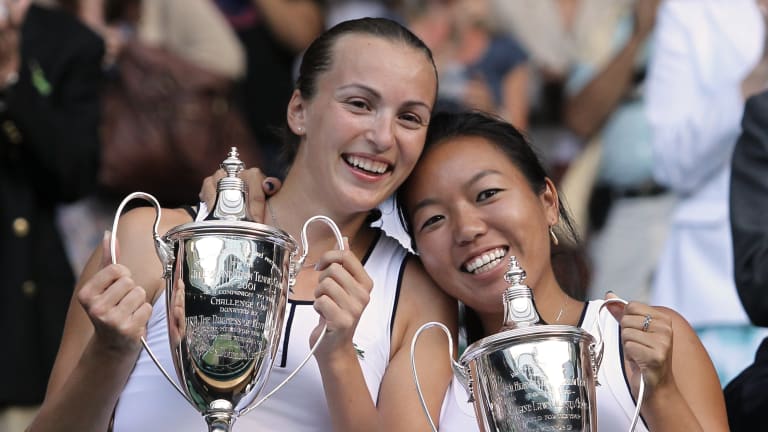
The power of self-discovery: how Vania King replaced fear with passion
© AFP via Getty Images
Advertising
Getty Images
A herniated disc forced King to endure her first lengthy layoff toward the end of 2014. A simple lift of the head brought on chronic pain, but her neck and spine weren’t areas she wanted to mess with surgically. With no guaranteed future in tennis, King approached the situation by accepting the worst-case scenario: early retirement. She teamed up with ACEing Autism, starting a program at her high school and soon became an ambassador. With an interest in education, she entered L.A.’s urban charter school system as a substitute teacher. From kindergarteners to high schoolers and sitting behind the desk as a secretary, the lack of stability was an eye-opening experience—and an unusual taste of reality—for a young adult who only knew life on a tennis court. Though it ultimately helped her realize teaching wasn’t a second calling, King finally recognized she loved tennis, and was ready to put the once-lingering emotional scars behind her.
Less than three years later, King was pushed back to square one, only this time, recuperation wasn’t enough to restore normalcy. At the time, King thought her ankle was simply overworked. As a pro athlete, pushing through pain is an accepted part of the job. Treatment and rest had worked before, but when she could no longer bear weight, King visited her first of many doctors. What followed next was a string of erratic messaging: ‘you might need surgery’, ‘you must have surgery’, ‘you need surgery and follow-up procedures’, ‘this surgical plan is routine and you’ll be back in three months.’ Ultimately, the timeline never met the expectations presented.
“I think not in a bad way, that I became skeptical of doctors. I still trust in them, but have more trust in how I feel,” says King. “This has given me perspective that doctors don’t know what they’re doing 100 percent. They’re giving you the best opinion they can based on experience and there’s a lot of different factors—experience with tennis included.”
Sidelined for an extended period once again, and later in multiple stages as the injury led King into a green light-red light cycle, the American understandably grappled with unhappiness. To avoid becoming completely disconnected, the tennis veteran channeled her energy into other interests and, unbeknownst to her, initiated a path of self-discovery that would help her see not all passions require a racquet in hand.
King started her Master’s in nonprofit management and coincidentally found herself in class alongside the WTA’s Ann Austin. The two hit it off, bouncing ideas back and forth in between their studies. At one stage, King stumbled upon an online article about a Ugandan woman who was brutally assaulted by her brother-in-law as a result of receiving property from her late husband. Africa already held a special place in King’s heart, born out of an initial love for wildlife and subsequent safari excursions. She reached out to the legal aid organization that represented the survivor and by chance, with an extra day in Kampala, met with the non-profit, Barefoot Law.
With her ACEing Autism history, experience launching a non-profit pilot program for seniors, positive takeaway from her visit in Uganda and relationship with Austin, a light bulb came on for King while on vacation at Yellowstone. The trip in late 2018 was meant as an escape for King, with her ankle coercing her to soul search. Then it dawned on her: WTA Charities. The philanthropic arm of the tour was in its infancy, but with Austin leading the charge in getting it off the ground, King was compelled to fully engage with the initiative—and more importantly—unearthed passion, a sensation no longer submerged in her mind.
“I think charities has been such a boon to my mental health, helping me stay grounded. It gives you validity outside of tennis, that you’re worth it as a person,” says King, who serves as Community Development Ambassador. “Whatever way you find is important. That’s what charities has done for me. I think if we spent more time talking to each other, charities is a great way for tournaments and players to develop a relationship without forcing it. At the end of the day, we all have the same goal.”
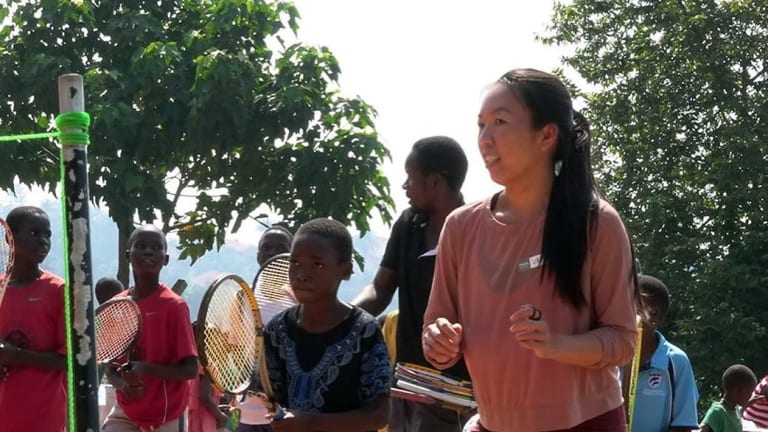
The power of self-discovery: how Vania King replaced fear with passion
Advertising
Vania King
Prior to the 2019 US Open, King returned to Kampala to co-host a three-day event with Barefoot Law, after a stem cell injection in her ankle—the most effective treatment she received—required time to set. The clinic combined tennis and legal aid activities for more than 200 underserved youth. It was deeply rewarding for King, who now appreciated the power of taking an agonizing challenge on the rise and redirecting it toward a positive corner of the mind. She carried her passion into starting her own nonprofit, Serving Up Hope, which provides sustainable tennis programs for underprivileged children around the globe.
Less than two months later, King, still struggling with bouts of pain, advanced to the doubles semifinals with Caroline Dolehide at Flushing Meadows. The result was a tribute to her perseverance and renewed state of mind, but also reflected a sign of the times. In New York, King finally accepted her ankle would never be the same, and that her athletic chapter, had few words left to write.
“There’s still trauma in the area. I saw about eight doctors. All said I needed surgery again,” says King. “The last doctor I spoke to said my syndesmosis ligament is torn and superficial deltoid and lateral ligaments are stretched. I have instability and he believes that was the root cause. The surgeon who did my surgery didn’t address the root cause and that’s why it never recovered. I have arthritis now, possibly exacerbated by the surgery.”
She planned a swan song at one of her favorite WTA stops, Charleston's Volvo Car Open, where she was due to reunite with Shvedova. King was then scheduled to visit South Africa in May to work with a friend on a month-long wildlife conservation program, before flying up to Uganda to continue her nonprofit work. Her biggest planned adventure was a complete change in scenery. Holding a permanent resident visa, King intended on moving to Australia in July, with the possibility of furthering her studies in psychology.
All of these next steps have been put on hold indefinitely, while the coronavirus pandemic controls the narrative. King hasn’t closed the book on rescheduling her farewell, though is heavily leaning toward not playing. It’s a harsh stroke of luck, but regardless, King will depart with genuine gratitude for the journey tennis has taken her on.
“I now can really appreciate what tennis has done for me, and how it impacted me as a person, good and bad,” says King. “I wouldn’t change anything because I feel like I’ve become capable and passionate about the things I care about, and that’s exactly how I’d like to be.”
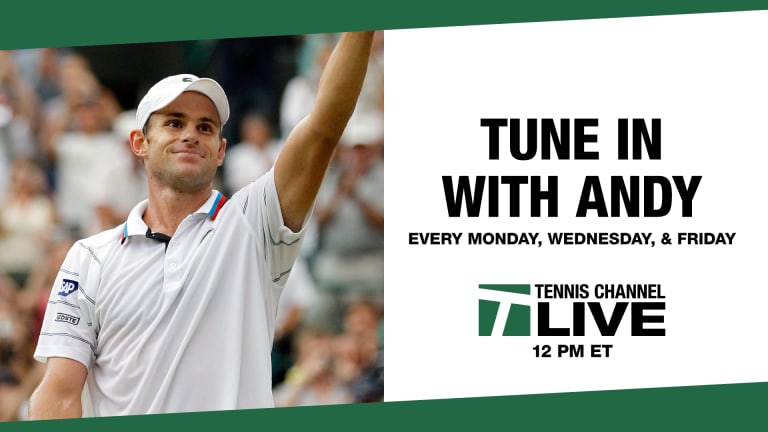
The power of self-discovery: how Vania King replaced fear with passion